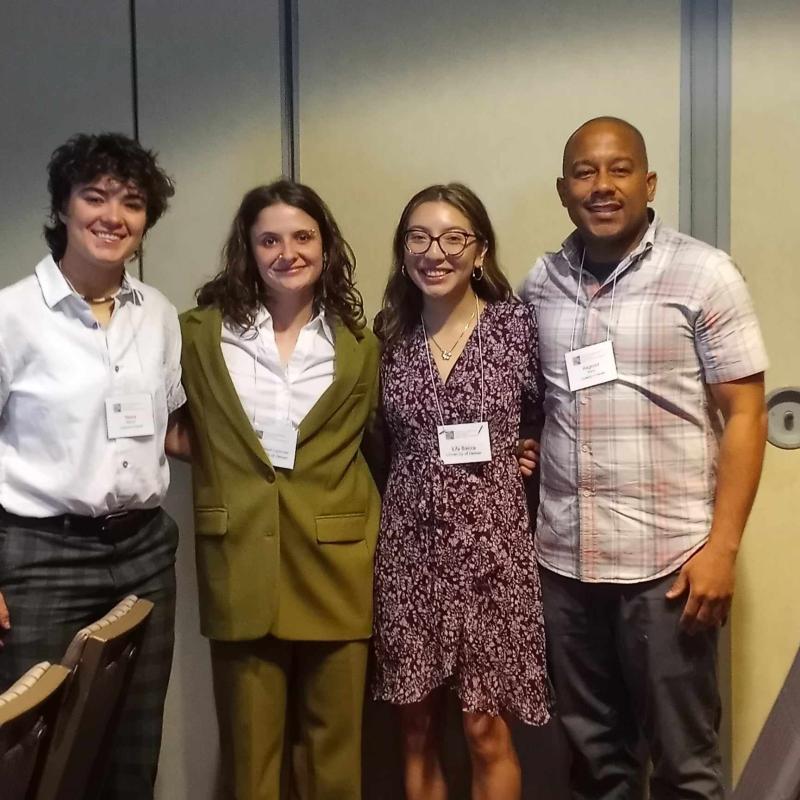Broadening the Impact of the Philadelphia Obituary Project
By Dr. Reginald A. Byron

1. Project Summary:
With this internal grant, which actively ran from June 2023 – May 2024, the primary goal was to systematically analyze the nearly 300 obituaries of murder victims posted on the Philadelphia Obituary Project’s website. The Philadelphia Obituary Project (hereafter “the Project”) is a 501 (c)(3) nonprofit organization that was founded in 2016 to provide an opportunity for the family and friends of murder victims in Philadelphia to speak about their lost loved ones in a detailed way – and in a way that the news media rarely holds space for. Over the summer of 2023, Dr. Reggie Byron and three paid University of Denver (DU) student research assistants (Lily Baeza, Ellie Barnett Cashman, and Malea Marxer) content coded all available obituaries to try to uncover if there were patterns to the representation of murder victims by their loved ones. We found that, for the most part, family members sought to provide redemptive counter narratives and highlight the many good qualities of their lost loved ones. For example, rather than focus on the murder itself, family members instead highlighted victims’ personality traits, hobbies, or dreams, and expressed the emotional toll that such a loss has taken on them. Unfortunately, research shows that some media outlets and even homicide detectives tend to blame victims of everyday urban homicide for precipitating their own deaths by engaging in illegal activities prior to their murders. Because this is the only narrative that most of the American public is exposed to, the Project provides space for a critical counternarrative for the largely Black and Brown victims of urban homicide, many of whom were not engaged in illegal activities prior to their deaths. Among other themes, we also found that the website functioned as a living memorial. That is, each obituary had a comment section that allowed family members and friends to return to the site over time and add additional reflections or connect with their loved ones, offering birthday and holiday wishes (e.g., “Happy Heavenly Birthday! I miss you!”). Such findings complicate our understanding of urban homicide and move us beyond the thinking of victims as simple statistics.
These results allowed us to do several things. First, we presented our findings at the Southern Sociological Society Conference in New Orleans in April of 2024. The students applied for and received DU’s Student Scholar Travel Fund (SSTF) to support their attendance at the conference. The presentation is titled “Disrupting ‘Good’ vs. ‘Bad’ Person Binaries by Humanizing Victims of Urban Homicide” was presented at the professional conference on April 4, 2024, and then again at DU’s Undergraduate Research Showcase on May 15, 2024. I also presented our findings to the Founder and Executive Director of the Philadelphia Obituary Project on April 15, 2024. With a portion of the allocated funding, the Project’s staff were able to train additional obituary writers so that more Philadelphia community members could be reached and have the stories of their loved ones told. Back at DU, two of the three students engaged in academic internships and wrote final papers about their experience conducting the research. Moreover, one student is currently writing an honors Thesis based on the findings from our research. I am the Chair of her thesis committee. We are hopeful that this work may someday be a published article.
2. Impact of Project:
In addition to the above-mentioned impacts, this project has opened the doors for connections to others in the wider scholarly community. In November 2023, Bill Dougherty, a composer and Fellow at Harvard's Radcliffe Center for Advanced Study, reached out to ask about our research findings and to share his upcoming sound project on murder victims in the Philadelphia community. And, in December 2023, Dr. Jessica Beard and journalist Jim MacMillan (who direct the Philadelphia Center for Gun Violence Reporting) reached out to trade resources because they are thinking about similar themes as those identified in our research. Both Zoom meetings were fruitful and promised future engagement. There was also a local DU article written about this work, and we are hopeful to one day produce a peer-reviewed publication in the journal Homicide Studies.
3. Scholarship produced:
Thus far, we have presented one paper at an academic conference, two academic internship papers, and one forthcoming honors thesis (as noted above).
4. Individuals affected by the work:
a. Undergraduate students: 3
b. Faculty: 1
c. Community individuals: 3
d. Community partners: 2
5. Community Partners:
The founder of the Philadelphia Obituary Project (Cletus Lyman) and the Executive Director (Albert Stumm) were our two direct community partners. They provided us with access to these data, issued part of the allocated funding to train additional obituary writers, and I shared the results with them on April 15, 2024.